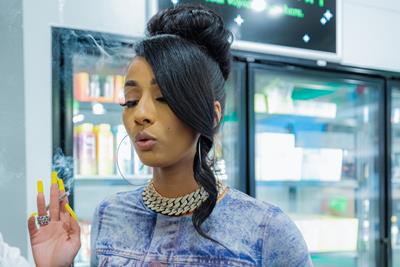
Friday May 5, 2023
By Ruth Seeley
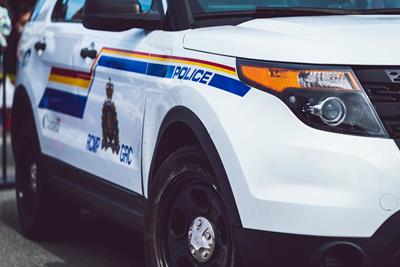 420 Culture
420 Culture
Whe Canada became the second country in the world to legalize recreational cannabis on October 17, 2018 (Uruguay was the first in 2013), one of the burning questions that remained unanswered was, “Can cops smoke weed?”
Even though legalization had been delayed for several months, the bill to legalize cannabis was first introduced in Parliament in April 2017, in fulfillment of a 2015 campaign promise by Liberal leader, now Prime Minister Justin Trudeau. Despite having several years to prepare, police forces across the country were still scrambling to develop policies for their officers’ potential recreational use a week before cannabis became legal for all Canadians.
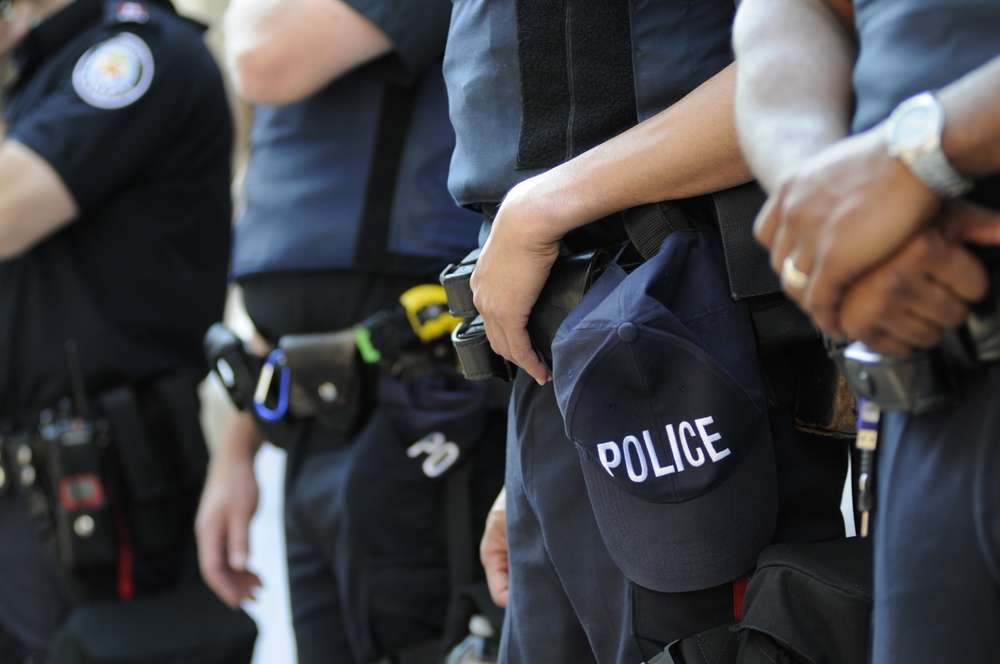
Of course, the fact that each province, territory, and municipality was allowed to tweak the legislation to suit itself made the process more complicated. For example, Despite the provision in the Cannabis Act to allow every Canadian to cultivate up to a maximum of four plants, Manitoba and Quebec do not allow home growing.
Can Canadian Cops Smoke Weed
It’s not surprising then that every police force in the country also had to develop recreational cannabis consumption policies for both their civilian and active-duty employees. Vancouver, Ottawa, Regina and Montreal were some of the first to allow their police to consume while off the clock. These cities adopted “fit for duty” policies.
In 2018, Regina Police Chief Evan Bray explained his city's rationale. "We don't tell our employees they cannot drink alcohol in their own time, away from work...but we do expect our officers to show up for work fit for duty and, on occasions where they do consume alcohol in their spare time, they've acquired it legally and used it legally."
Winnipeg Police Association President Maurice Sabourin explained his rationale, “I'm sure our members are responsible enough to know they can't be coming to work in an impaired state."
Oddly, in Vancouver, the home of BC bud, the Vancouver Police Board debated specific policy points including a 24-hour pre-shift abstinence period. Others supported the popular fit-for-duty model, and in the end, that became policy.
A summer 2018 report by the Vancouver Police Department pinpointed significant holes in the one-day prohibition plan.
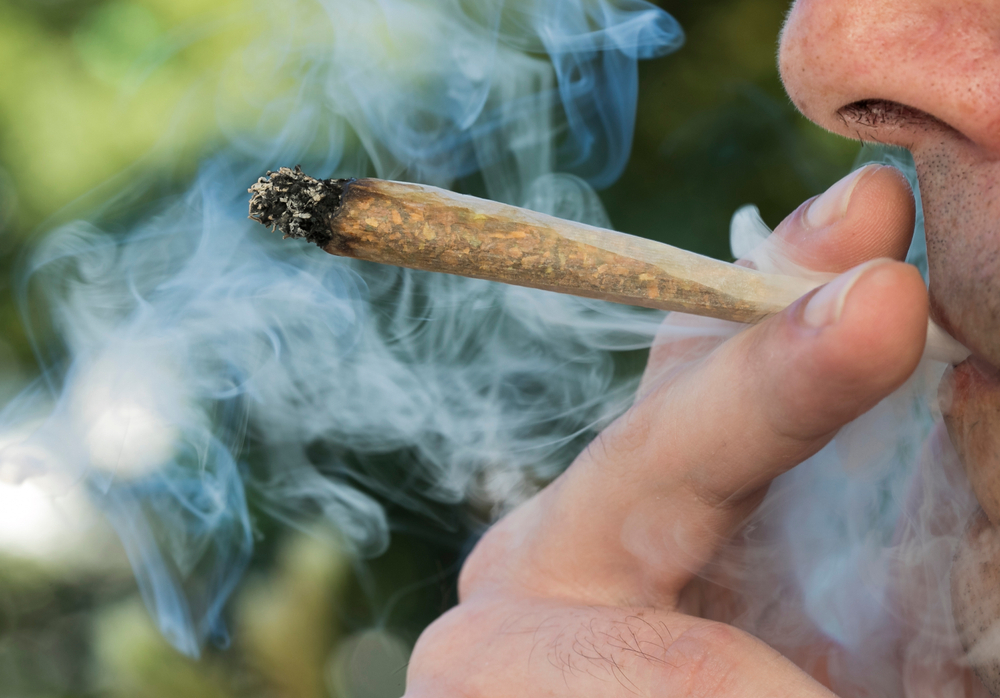
“Specifying a time frame can create an implicit approval that this period of abstinence is all that’s required to ensure fitness for duty. This can lead to unnecessary labor conflicts where employees are fit for duty but have consumed cannabis within this time frame, or where employees are not fit for duty but mistakenly believe they are, as they consumed outside this time frame.”
At the same time, the Canadian military followed suit with the fit for duty policy. Lt.-Gen. Chuck Lamarre told CBC back in 2018 that the military’s stance had some restrictions without prohibiting consumption by its service members. Lamarre explained that the military's policy, "allows us to respect the law," while adding, "but at the same time, I think Canadians are expecting our operational readiness and our ability to do our business must never be compromised."
28-Day Policy in Some Areas
Not all Canadian jurisdictions are as lenient, and officers must be cannabis-free for 28 days before reporting for duty. The decision was based on research from medical advisory services, the Ontario Association of Chiefs of Police and the Canadian Association of Chiefs of Police. The findings were based on the length of time THC is stored in the body and the potential impacts it could have on a person during that period.
Canada's national police service, the Royal Canadian Mounted Police (RCMP, Mounties, mounted police, red coats) also provides contract policing services in provinces and territories that don’t have their own provincial police forces (everywhere but Ontario, Quebec, and Newfoundland and Labrador), and sometimes provides municipal policing in isolated communities throughout the country.
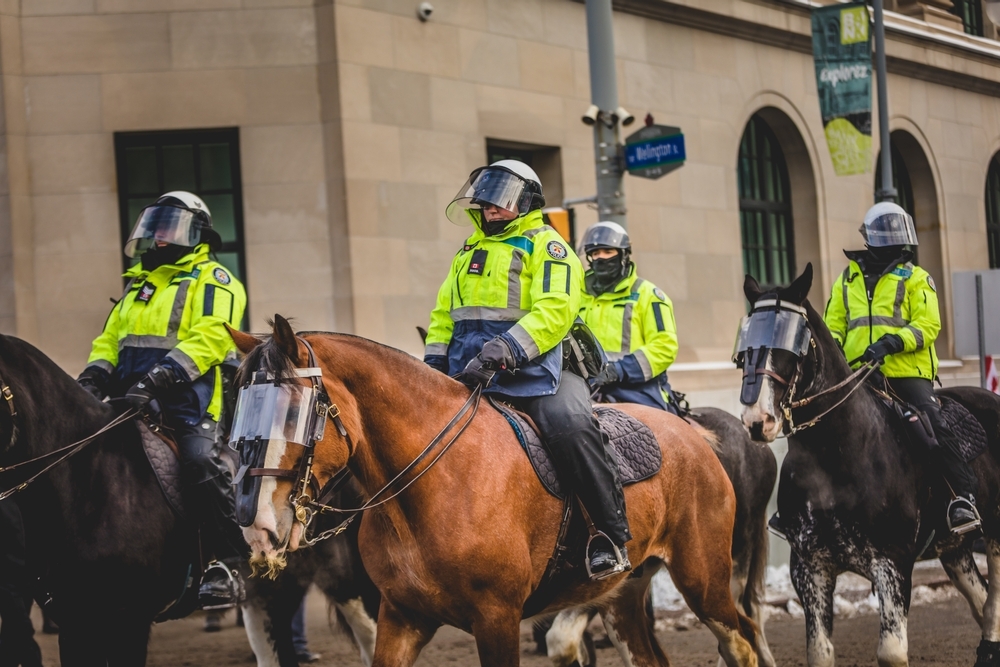
While the headline on the day after legalization read, “Mounties will be barred from smoking pot almost a month prior to any shift,” the actual policy is a hybrid of fit for duty and a 28-day pre-shift ban. The Substance Use Policy states all employees:
“Must be fit for duty when reporting for work, which includes not being impaired by alcohol or drugs. Those who work in a safety-sensitive position and must refrain from using non-medicinal cannabis 28 days prior to reporting to work. All RCMP regular members (police officers) who are deemed operational are considered to be in a safety-sensitive position.”
Back in 2018, Canadian Police Association head Tom Stamatakis blasted the move to an almost-month-long pre-shift ban on consumption just prior to legalization. He called the decision "beyond ridiculous" claiming that it did not protect officers or the public. Vancouver Police Constable Jason Doucette agreed. He said that, "In the end, public safety and the safety of our officers is number one. All of our officers understand and we're not anticipating any issues whatsoever."
Do Cops Want to Smoke Weed?
Judging from the interview Tom Stamatakis, president of the Canadian Police Association, gave to iHeart Radio in October 2018, the answer is a resounding yes. Furthermore, his position was that cannabis should be treated the same way as other legal substances, including alcohol and prescription drugs, that can cause impairment.
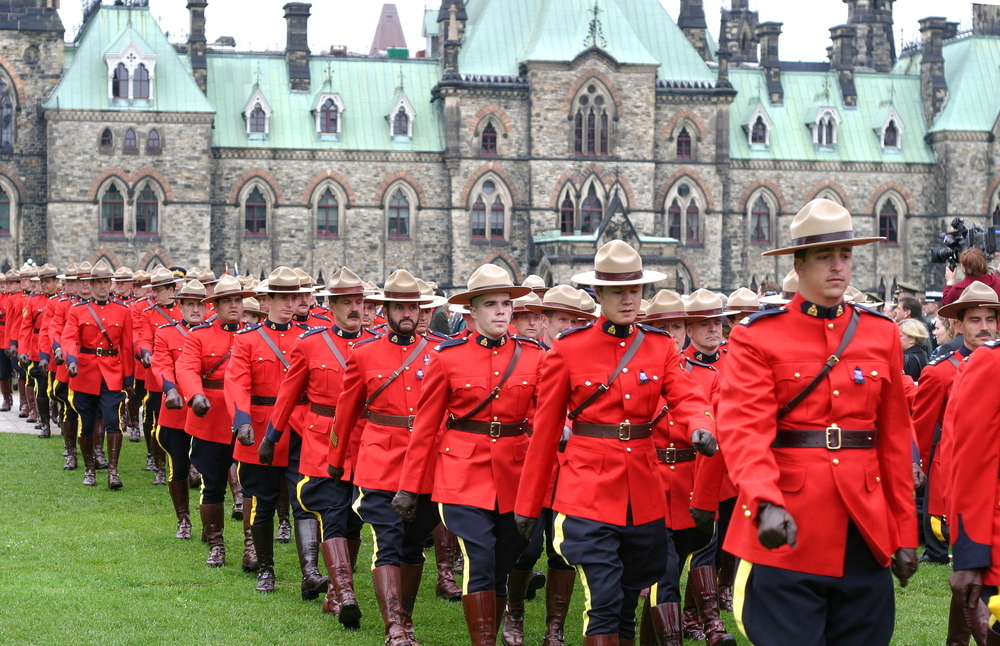
"Effectively what they're saying is, we don't trust police officers to make the right decision when it comes to reporting for work fit for duty," Stamatakis said in an interview. "And I just find that to be an offensive approach."
He objected to the inconsistency of policies being developed by local police forces, and pointed out there had been no meaningful consultation with police association members prior to drafting and implementing recreational cannabis consumption policies.
Calgary Lifts Ban on Police Cannabis Consumption
When recreational cannabis first became legal in Canada, Calgary police alone were banned from consuming cannabis. The province's police union president, Les Kaminski, considered it the "path of least resistance" and stated he believed police officers using cannabis off duty posed a risk to the public. In February 2022, after re-evaluating its policy, the Calgary Police Service lifted its ban on officers consuming cannabis off-duty, and implemented a “fit for duty” policy instead. Both the Calgary and Alberta police associations lobbied for the policy change, according to the Association and its Alberta counterpart, said Calgary Police Association President John Orr.
Ongoing Research
Changes in policies regarding whether cops can smoke weed or not have been informed by both ongoing research and anecdotal accounts. In some cases policies have been modified and relaxed as legalized recreational cannabis consumption has become the norm and we have seen no instances of reefer madness among the general public, police officers, or members of the armed forces. Knowledge actually is power, as it turns out.
Frequently Asked Questions
Are police officers allowed to smoke?
Police officers are, like all other Canadians, allowed to consume recreational cannabis in the form of flower, edibles, and concentrates. That means officers can smoke weed when off duty wherever smoking is permitted, as long as they are fit for duty. That can mean a ban on cannabis consumption for as little as eight to 24 hours or as long as 28 days prior to a shift, depending on their operational duties and the specific policies of their employer.
Do police officers get drug tested in Canada?
None of the policies adopted by Canadian police forces at the national, provincial, or municipal level included routine or random drug testing. Naturally, however, if an officer does not appear to be fit for duty and substance abuse of any kind is suspected, the officer may be required to undergo a drug test. Canadian Armed Forces members since 1990 have been subject to random drug testing. This includes all ranks and occupations, including full-time reservists. This random testing, however, is primarily focused on members in, “safety-sensitive occupations or in trades in occupational units such as ships, air squadrons or army field units,” as well as automatically after an accident.
Here's a list of Canadian police services that responded to CBC's request for details on cannabis policies:
- Vancouver: Officers allowed to consume.
- Edmonton: Police officers have been banned from consuming cannabis since legalization. While this decision was to be reviewed every six months, no change has been announced
- Regina: Saskatchewan police forces were quick to adopt a “fit for duty” model that states officers cannot be impaired while on duty, whether due to cannabis, alcohol, or prescription drugs, but didn’t specify a time period for abstinence prior to start of shift.
- Winnipeg: Officers must be “fit for duty,” and in the wake of cannabis legalization the definition of fit for duty was being reexamined as it relates to not only cannabis but also alcohol and prescription medications.
- Toronto: Toronto’s “fitness for duty” policy bars officers from consuming cannabis for 28 prior to a shift.
- Ottawa: Officers allowed to consume. The only stipulation for Ottawa police is they must be "free from the effects of alcohol or any drug including cannabis" when they report for duty.
- Montreal: Officers allowed to consume.
- Halifax: No policy yet.
- St. John's: No policy yet.





